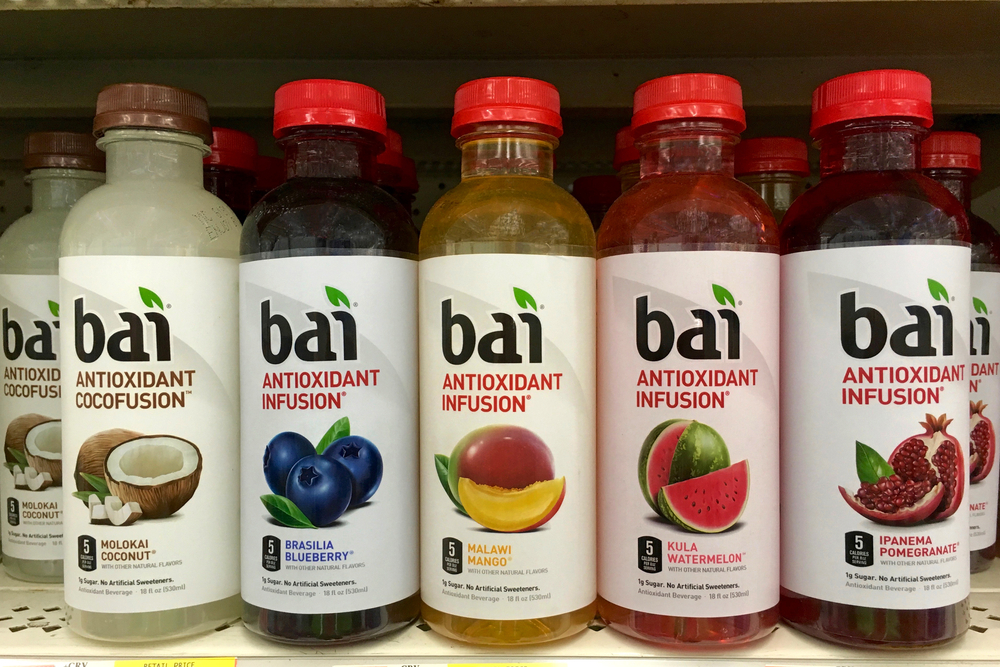Dr. Pepper Snapple Group Inc. announced last month that it planned to buy antioxidant beverages maker Bai Brands for $1.7 billion in cash, the latest example of a soft-drink maker investing in products that are perceived to be healthier, and what appears to be the largest startup exit the Philadelphia area has seen in over five years.
Bai was founded in 2009, across the Delaware River in Princeton, N.J., the hometown of founder Ben Weiss. The company has grown steadily ever since and expanded into national distribution in 2014 through an agreement with its now acquirer, Dr. Pepper Snapple Group. Bai, which means “pure” in Mandarin Chinese, may begin to mean something else for startups in the Philadelphia area.
In order for a tech community to be successful, companies need access to talent, advisory support and capital, amongst other things. As the home to several nationally-ranked universities, Philadelphia has no shortage of talent. The city has also fostered an entrepreneurial ecosystem that seems to be growing at an exponential rate, led by organizations and community events such as Philly Startup Leaders and Philly New Tech Meetup. Even Mayor Jim Kenney has taken note of the progress the tech community has made, and will continue to make, on the city.
Nevertheless, although Philly has had several large exits in the past, the lack of access to later-stage capital remains a common criticism amongst founders growing their companies here. Many companies tend to enjoy Philly’s cost of living and operating when first starting out, which are low in comparison to other areas across the country. Then, once they reach a stage where they need to raise several million dollars, many look or move to New York or Silicon Valley — areas that are internationally known for acquisitions and IPOs, which lead to large amounts of available investment capital.
Bai's exit will make investors take note of the Philly region.
It is no secret that when large exits occur, the founders and employees who are able to cash in on the exit tend to stay in that area and reinvest some of their earnings into the entrepreneurs starting companies behind them — just look at how Silicon Valley got started. Founders start, grow and exit companies, then they reinvest into the next generation of startups in their area. It’s cyclical in nature, but without large exits, the cycle can’t occur.
Having a $1.7 billion exit just across the river could help change all of that for Philly. It’s not a certainty, but it is likely that with such a large deal, some of the employees who had stock in BAI Brands will reinvest some of their earnings into Philly startups. We’ve seen this happen in the past with Josh Kopelman, for example, who founded venture capital firm First Round Capital after selling his company Half.com to eBay for $350 million in June 2000. Since then, First Round has invested money into Philly startups, allowing local companies such as Curalate and Monetate to put Philadelphia on the map.
I can’t say that Ben Weiss will become the next Josh Kopelman and go on to start a venture firm like First Round Capital, but he is from Princeton and some of the other Bai executives (who will presumably be making out quite well from this deal) have strong ties to Philly from either working in the area or going to school here. That increases the chances of Philly startups benefitting from the deal, and with other exits, like RJMetrics’ acquisition back in August of this year, we may be seeing a turn of the tide for available capital in our city.
Another way Philly startups will benefit from Bai’s buyout is that the deal will draw additional outside attention to the area. When a company is bought out for over a billion dollars, investors tend to pay attention. Now that the Philly area has chalked up another billion-dollar exit, investors and large companies from across the country are likely to start paying even closer attention our startup community. Additional attention from investors outside of the area could also make it easier for startups looking to raise funding.
With access to more early and later-stage capital, Philadelphia’s startup community will only continue to grow. While it’s unlikely that the Bai acquisition will be the linchpin of success for Philly startups, it definitely won’t hurt to have the extra attention and an extra $1.7 billion in the area.







